AND
-
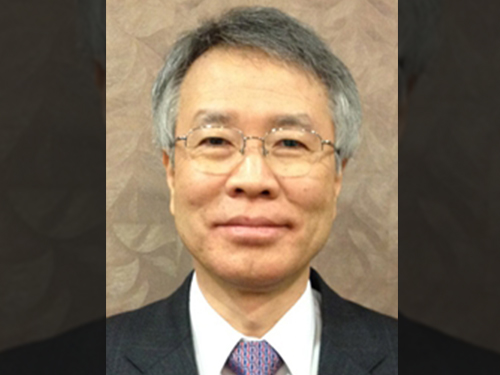 Professor Kyu-Young Whang receives the PAKDD Distinguished Contributions Award
Professor Kyu-Young Whag
Dr. Kyu-Young Whang, Distinguished Professor from the Department of Computer Science, KAIST, has received the 2014 Distinguished Contributions Award from the Pacific-Asia Conference on Knowledge Discovery and Data Mining (PAKDD). PAKDD is the leading academic international conference on data mining held in Asia/Pacific. This year’s international conference was held from 13th to 15th May at Tainan, Taiwan.
As a life member of the PAKDD Steering Committee, Professor Whang worked for the development of the data mining field in the Asia-Pacific region, and his contribution to the international database and data-mining field has been widely recognized.
The PAKDD Distinguished Contributions Award has been awarded to a total of six people until now, including Professor Whang, and he is the first Korean to receive this award.
Professor Whang has also a history of receiving the Outstanding Contributions Award in 2011 from the Database Systems for Advanced Applications (DASFAA), the prestigious database academic conference in the Asia-Pacific region. The database and data mining field in the region was barren 20 years ago, but through the efforts and contributions of many researchers, including Professor Whang, it has now leapt to the level of being the equal of North American and European researchers.
In fact, three academic organizations in the current international database field are led by professors in the Asia-Pacific region. The IEEE ICDE (Institute of Electrical and Electronics Engineers Technical Committee on Data Engineering) is led by Professor Whang; the VLDB (Very Large Data Base) Endowment by Professor Beng Chin Ooi from National University of Singapore (NUS); and the ACM SIGMOD (Association for Computing Machinery Special Interest Group on Management of Data) by Professor Don Kossmann from ETH Zurich.
2014.05.26 View 9045
Professor Kyu-Young Whang receives the PAKDD Distinguished Contributions Award
Professor Kyu-Young Whag
Dr. Kyu-Young Whang, Distinguished Professor from the Department of Computer Science, KAIST, has received the 2014 Distinguished Contributions Award from the Pacific-Asia Conference on Knowledge Discovery and Data Mining (PAKDD). PAKDD is the leading academic international conference on data mining held in Asia/Pacific. This year’s international conference was held from 13th to 15th May at Tainan, Taiwan.
As a life member of the PAKDD Steering Committee, Professor Whang worked for the development of the data mining field in the Asia-Pacific region, and his contribution to the international database and data-mining field has been widely recognized.
The PAKDD Distinguished Contributions Award has been awarded to a total of six people until now, including Professor Whang, and he is the first Korean to receive this award.
Professor Whang has also a history of receiving the Outstanding Contributions Award in 2011 from the Database Systems for Advanced Applications (DASFAA), the prestigious database academic conference in the Asia-Pacific region. The database and data mining field in the region was barren 20 years ago, but through the efforts and contributions of many researchers, including Professor Whang, it has now leapt to the level of being the equal of North American and European researchers.
In fact, three academic organizations in the current international database field are led by professors in the Asia-Pacific region. The IEEE ICDE (Institute of Electrical and Electronics Engineers Technical Committee on Data Engineering) is led by Professor Whang; the VLDB (Very Large Data Base) Endowment by Professor Beng Chin Ooi from National University of Singapore (NUS); and the ACM SIGMOD (Association for Computing Machinery Special Interest Group on Management of Data) by Professor Don Kossmann from ETH Zurich.
2014.05.26 View 9045 -
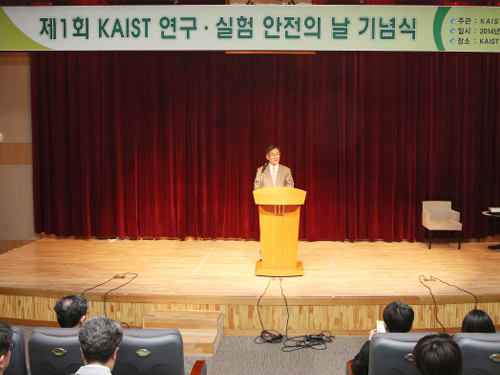 KAIST Conducts Safety Awareness Campaign for Research and Experiment
KAIST had an opening ceremony to hold its first “Safety Awareness Campaign for Research and Experiment” on 13th May. Over 100 people attended the ceremony, including President Steve Kang, Provost Gyu-Ho Park, and the Dean of the Administration Office Jae-Nam Lee, as well as the Chief of the Department of Research Environment Safety from the Ministry of Science, ICT and Future Planning, Republic of Korea.
On the day of the event, Year 2014 was proclaimed as the first year of accident-free KAIST research and laboratory facilities.
A certificate of merit was awarded to promote safe and comfortable research environments. The Department of Civil and Environmental Engineering, KAIST, was selected as the department with the best lab safety management and the Department of Mechanical Engineering as the second.
Along with the merit award ceremony, the results of the “7th Research and Laboratory Safety Campaign Contest” were announced: “Lady First When Dating, Safety First When Experimenting!” written by Jong-Su Bae from the Department of Mechanical Engineering was selected as the best slogan, and Hyeon-Chae Noh from the Department of Civil and Environmental Engineering received the award for best poster.
President Steve Kang said, “KAIST is constantly striving to establish a comprehensive safety management system and to promote a safe research and laboratory environment,” and “To ensure the safety of KAIST and its members, we will be as supportive as possible.”
Below is the winner of the poster from the 7th Research and Laboratory Safety Campaign Contest.
What Would You Rather Wear? Gloves or Bandages?
Gloves worn in laboratories are protection from hazardous materials that students and researchers may come in contact with. The poster emphasizes the importance of wearing protective gloves when conducting research or experiment.
2014.05.19 View 8412
KAIST Conducts Safety Awareness Campaign for Research and Experiment
KAIST had an opening ceremony to hold its first “Safety Awareness Campaign for Research and Experiment” on 13th May. Over 100 people attended the ceremony, including President Steve Kang, Provost Gyu-Ho Park, and the Dean of the Administration Office Jae-Nam Lee, as well as the Chief of the Department of Research Environment Safety from the Ministry of Science, ICT and Future Planning, Republic of Korea.
On the day of the event, Year 2014 was proclaimed as the first year of accident-free KAIST research and laboratory facilities.
A certificate of merit was awarded to promote safe and comfortable research environments. The Department of Civil and Environmental Engineering, KAIST, was selected as the department with the best lab safety management and the Department of Mechanical Engineering as the second.
Along with the merit award ceremony, the results of the “7th Research and Laboratory Safety Campaign Contest” were announced: “Lady First When Dating, Safety First When Experimenting!” written by Jong-Su Bae from the Department of Mechanical Engineering was selected as the best slogan, and Hyeon-Chae Noh from the Department of Civil and Environmental Engineering received the award for best poster.
President Steve Kang said, “KAIST is constantly striving to establish a comprehensive safety management system and to promote a safe research and laboratory environment,” and “To ensure the safety of KAIST and its members, we will be as supportive as possible.”
Below is the winner of the poster from the 7th Research and Laboratory Safety Campaign Contest.
What Would You Rather Wear? Gloves or Bandages?
Gloves worn in laboratories are protection from hazardous materials that students and researchers may come in contact with. The poster emphasizes the importance of wearing protective gloves when conducting research or experiment.
2014.05.19 View 8412 -
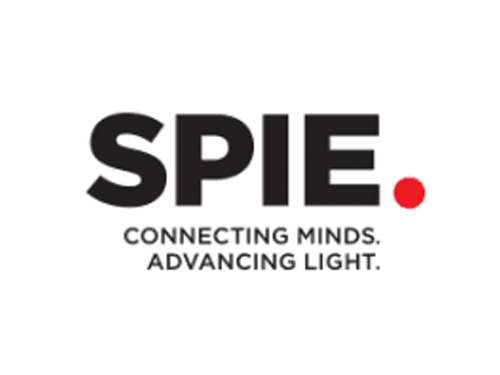 SPIE (The International Society for Optics and Photonics): Scattering Super-lens
The International Society for Optics and Photonics (SPIE), dedicated to advancing an interdisciplinary approach to the science and application of light, published online a short paper authored by a KAIST research team, Dr. Jung-Hoon Park and Professor YongKeun Park of Physics, introducing a new optical technology to observe sub-wavelength light by exploiting multiple light scattering in complex media.
For the article, please go to the link below:
SPIE: Nanotechnology
May 7th, 2014
"Scattering superlens" by Jung-Hoon Park and YongKeun Park
http://spie.org/x108298.xml
2014.05.14 View 7446
SPIE (The International Society for Optics and Photonics): Scattering Super-lens
The International Society for Optics and Photonics (SPIE), dedicated to advancing an interdisciplinary approach to the science and application of light, published online a short paper authored by a KAIST research team, Dr. Jung-Hoon Park and Professor YongKeun Park of Physics, introducing a new optical technology to observe sub-wavelength light by exploiting multiple light scattering in complex media.
For the article, please go to the link below:
SPIE: Nanotechnology
May 7th, 2014
"Scattering superlens" by Jung-Hoon Park and YongKeun Park
http://spie.org/x108298.xml
2014.05.14 View 7446 -
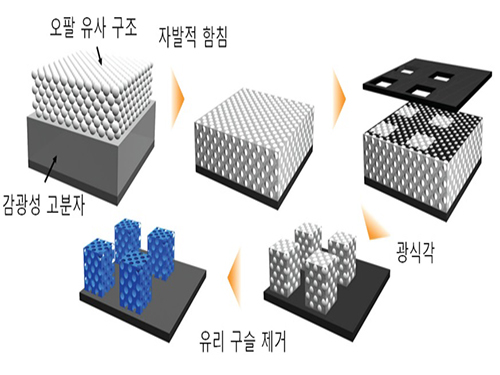 Clear Display Technology Under Sunlight Developed
The late Professor Seung-Man Yang
The last paper of the late Professor Seung-Man Yang, who was a past master of colloids and fluid mechanics
Practical patterning technology of the next generation optical materials, photonic crystals
The mineral opal does not possess any pigments, but it appears colorful to our eyes. This is because only a particular wavelength is reflected due to the regular nano-structure of its surface. The material that causes selective reflection of the light is called photonic crystals.
The deceased Professor Seung-Man Yang and his research team from KAIST’s Chemical and Biomolecular Engineering Department ha ve developed micro-pattern technology using photolithographic process. This can accelerate the commercialization of photonic crystals, which is hailed as the next generation optics material.
The research results were published in the April 16th edition of Advanced Materials, known as the most prestigious world-renowned journal in the field of materials science.
The newly developed photonic crystal micro-pattern could be used as a core material for the next generation reflective display that is clearly visible even under sunlight. Since it does not require a separate light source, a single charge is enough to last for several days.
Until now, many scientists have endeavored to make photonic crystals artificially, however, most were produced in a lump and therefore lacked efficiency. Also, the low mechanical stability of the formed structure prevented from commercialization.
In order to solve these problems, the research team has copied the nano-structure of opals.
Glass beads were arranged in the same nano-structure as the opal on top of the photoresist material undergoing photocuring by ultraviolet light. The glass beads were installed in the photoresist materials, and UV light was selectively exposed on micro regions. The remaining region was developed by photolithographic process to successfully produce photonic crystals in micro-patterns.
The co-author of the research, KAIST Chemical and Biomolecular Engineering Department’s Professor Sin-Hyeon Kim, said, “Combining the semiconductor process technology with photonic crystal pattern technology can secure the practical applications for photonic crystals.”He also predicted “This technology can be used as the key optical material that configures the next generation reflective color display device with very low power consumption.”
The late Professor Seung-Man Yang was a world-renowned expert in the field of colloids and fluid mechanics. Professor Yang published over 193 papers in international journals and continued his research until his passing in last September.
He received Du Pont Science and Technology Award in 2007, KAIST Person of the Year 2008, Gyeong-Am Academy Award in 2009, as well as the President’s Award of the Republic of Korea in March 2014. The researchers devoted the achievement of this year’s research to Professor Yang in his honor.
Research was conducted by KAIST Photonic-fluidic Integrated Devices Research Team, as a part of the Creative Research Program funded by the Ministry of Science, ICT and Future Planning, Republic of Korea.
Figure 1. Opal [left] and the nano glass bead arrangement structure within the opal [right]
Figure 2. Process chart of the photonic crystal micro-pattern formation based on photolithography
Figure 3. Opal structure [left] and inverted structure of the opal [right]
Figure 4. Photonic crystal micro-pattern in solid colors
Figure 5. Photonic crystal micro-pattern that reflects two different crystals (Red, Green) [left] and pixelated pattern of photonic crystal in three primary colors (Red, Green, Blue) [right] that is applicable to reflective displays
2014.05.14 View 12779
Clear Display Technology Under Sunlight Developed
The late Professor Seung-Man Yang
The last paper of the late Professor Seung-Man Yang, who was a past master of colloids and fluid mechanics
Practical patterning technology of the next generation optical materials, photonic crystals
The mineral opal does not possess any pigments, but it appears colorful to our eyes. This is because only a particular wavelength is reflected due to the regular nano-structure of its surface. The material that causes selective reflection of the light is called photonic crystals.
The deceased Professor Seung-Man Yang and his research team from KAIST’s Chemical and Biomolecular Engineering Department ha ve developed micro-pattern technology using photolithographic process. This can accelerate the commercialization of photonic crystals, which is hailed as the next generation optics material.
The research results were published in the April 16th edition of Advanced Materials, known as the most prestigious world-renowned journal in the field of materials science.
The newly developed photonic crystal micro-pattern could be used as a core material for the next generation reflective display that is clearly visible even under sunlight. Since it does not require a separate light source, a single charge is enough to last for several days.
Until now, many scientists have endeavored to make photonic crystals artificially, however, most were produced in a lump and therefore lacked efficiency. Also, the low mechanical stability of the formed structure prevented from commercialization.
In order to solve these problems, the research team has copied the nano-structure of opals.
Glass beads were arranged in the same nano-structure as the opal on top of the photoresist material undergoing photocuring by ultraviolet light. The glass beads were installed in the photoresist materials, and UV light was selectively exposed on micro regions. The remaining region was developed by photolithographic process to successfully produce photonic crystals in micro-patterns.
The co-author of the research, KAIST Chemical and Biomolecular Engineering Department’s Professor Sin-Hyeon Kim, said, “Combining the semiconductor process technology with photonic crystal pattern technology can secure the practical applications for photonic crystals.”He also predicted “This technology can be used as the key optical material that configures the next generation reflective color display device with very low power consumption.”
The late Professor Seung-Man Yang was a world-renowned expert in the field of colloids and fluid mechanics. Professor Yang published over 193 papers in international journals and continued his research until his passing in last September.
He received Du Pont Science and Technology Award in 2007, KAIST Person of the Year 2008, Gyeong-Am Academy Award in 2009, as well as the President’s Award of the Republic of Korea in March 2014. The researchers devoted the achievement of this year’s research to Professor Yang in his honor.
Research was conducted by KAIST Photonic-fluidic Integrated Devices Research Team, as a part of the Creative Research Program funded by the Ministry of Science, ICT and Future Planning, Republic of Korea.
Figure 1. Opal [left] and the nano glass bead arrangement structure within the opal [right]
Figure 2. Process chart of the photonic crystal micro-pattern formation based on photolithography
Figure 3. Opal structure [left] and inverted structure of the opal [right]
Figure 4. Photonic crystal micro-pattern in solid colors
Figure 5. Photonic crystal micro-pattern that reflects two different crystals (Red, Green) [left] and pixelated pattern of photonic crystal in three primary colors (Red, Green, Blue) [right] that is applicable to reflective displays
2014.05.14 View 12779 -
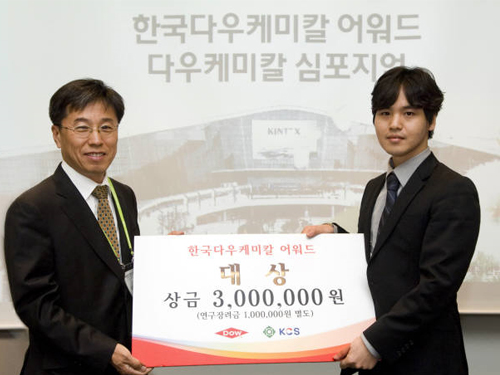 Yong-Joon Park, doctoral student, receives the Korea Dow Chemical Award 2014
Yong-Joon Park, a Ph.D. candidate of Materials Science and Engineering at KAIST, received the Korea Dow Chemical Award 2014, a prestigious recognition of the year’s best paper produced by students in the field of chemistry and materials science.
The award ceremony took place on April 18, 2014 at Ilsan Kintex, Republic of Korea.
The Korea Dow Chemical Award is annually given by Korea Dow Chemical and the Korean Chemical Society to outstanding papers produced by graduate and postdoc students. This year, a total of nine papers were selected out of 148 papers submitted.
The title of Park’s paper is “The Development of 3D Nano-structure-based New Concept Super-elastic Materials.” This material could be used in flexible electronic devices such as displays and wearable computers.
2014.05.03 View 9059
Yong-Joon Park, doctoral student, receives the Korea Dow Chemical Award 2014
Yong-Joon Park, a Ph.D. candidate of Materials Science and Engineering at KAIST, received the Korea Dow Chemical Award 2014, a prestigious recognition of the year’s best paper produced by students in the field of chemistry and materials science.
The award ceremony took place on April 18, 2014 at Ilsan Kintex, Republic of Korea.
The Korea Dow Chemical Award is annually given by Korea Dow Chemical and the Korean Chemical Society to outstanding papers produced by graduate and postdoc students. This year, a total of nine papers were selected out of 148 papers submitted.
The title of Park’s paper is “The Development of 3D Nano-structure-based New Concept Super-elastic Materials.” This material could be used in flexible electronic devices such as displays and wearable computers.
2014.05.03 View 9059 -
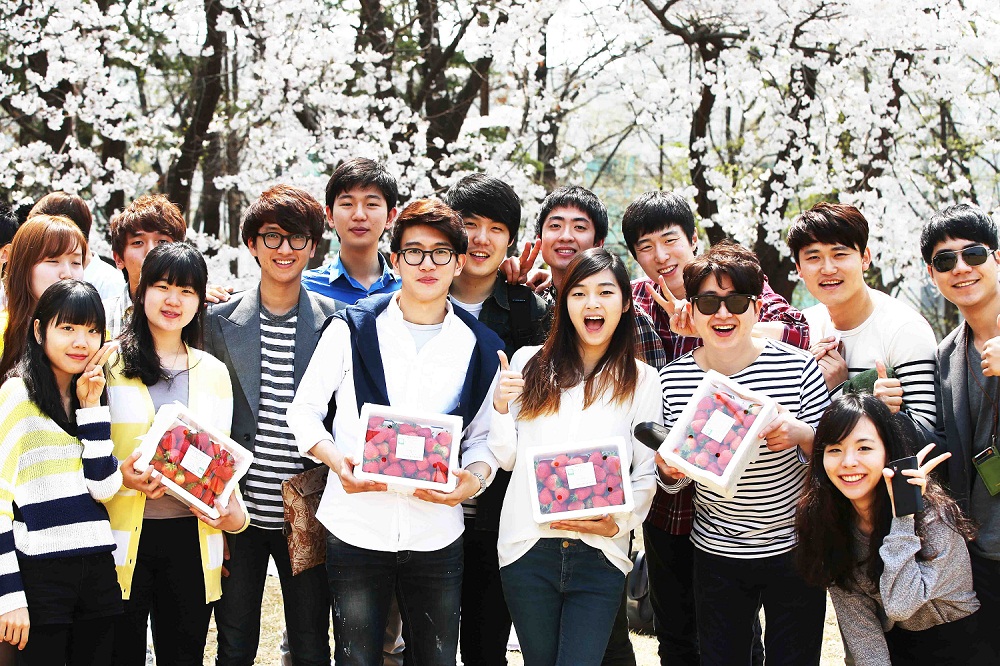 Strawberries Delivered by A Miniature Drone at KAIST Spring Festival
The "HAPPY KAIST 2014 Spring Festival" held at KAIST from 4th April
The Cherry Blossoms Festival under the theme of "Cherry Blossoms: Light and Fantasy" held on 4th April
The Strawberry Party with strawberries exclusively delivered by a miniature drone on 11th April
KAIST is holding a spring festival from April 4th through 11th.
As a part of the "HAPPY KAIST 2014" event, cherry blossoms festival and strawberry party will be held at KAIST campus starting on April 4th.
This event has been organized with the purpose of creating a new culture and tradition for members of KAIST to unite. Faculty members, staff, and students have all contributed to making the festival a success.
The cherry blossoms festival, held under the theme of "Cherry Blossoms: Light and Fantasy," takes place at the road in front of the KAIST north dormitory, which provides a spectacular view of cherry blossom trees. It begins on the night of April 4th and continues until the 8th of April.
Around the cherry blossom tree road displays an art exhibition by the Design Rangers, a student club of graduate and doctorate students from the Department of Industrial Design at KAIST. The exhibition includes the "Fantasy Cherry Blossoms" and "Let’s Walk Together."
Following on the 11th will be the "Strawberry Party" to take place throughout the campus. The strawberry party began in 1995 in order to help the local strawberry farmers. Now, it has become KAIST’s own unique tradition attended by faculty, student clubs, and laboratory members.
This year, the fruit party becomes a unique event in that there will be a demonstration of strawberry delivery by an unmanned vehicle or an unmanned aerial vehicle (a miniature drone).
When a customer orders strawberries via a smart phone application, the user's current location is sent to the central system of an unmanned vehicle. Either the unmanned vehicle (UV) transports strawberries or for places
inaccessible
by the UV such as on a lawn, the drone delivers the fruit to the customer
.
This demonstration has been organized by Professor Hyunchul Shim from the Department of Aerospace Engineering at KAIST. Professor Shim said, “If the unmanned logistics system, such as the one being demonstrated at the Strawberry Party, is commercialized, both cost and time
in the logistics industry
can be significantly reduced.”
The HAPPY KAIST 2014,
organized
by the College of Engineering, is an annual event, consisting of a total of five programs, with the purpose to make the campus happier and
healthier.
2014.04.07 View 9873
Strawberries Delivered by A Miniature Drone at KAIST Spring Festival
The "HAPPY KAIST 2014 Spring Festival" held at KAIST from 4th April
The Cherry Blossoms Festival under the theme of "Cherry Blossoms: Light and Fantasy" held on 4th April
The Strawberry Party with strawberries exclusively delivered by a miniature drone on 11th April
KAIST is holding a spring festival from April 4th through 11th.
As a part of the "HAPPY KAIST 2014" event, cherry blossoms festival and strawberry party will be held at KAIST campus starting on April 4th.
This event has been organized with the purpose of creating a new culture and tradition for members of KAIST to unite. Faculty members, staff, and students have all contributed to making the festival a success.
The cherry blossoms festival, held under the theme of "Cherry Blossoms: Light and Fantasy," takes place at the road in front of the KAIST north dormitory, which provides a spectacular view of cherry blossom trees. It begins on the night of April 4th and continues until the 8th of April.
Around the cherry blossom tree road displays an art exhibition by the Design Rangers, a student club of graduate and doctorate students from the Department of Industrial Design at KAIST. The exhibition includes the "Fantasy Cherry Blossoms" and "Let’s Walk Together."
Following on the 11th will be the "Strawberry Party" to take place throughout the campus. The strawberry party began in 1995 in order to help the local strawberry farmers. Now, it has become KAIST’s own unique tradition attended by faculty, student clubs, and laboratory members.
This year, the fruit party becomes a unique event in that there will be a demonstration of strawberry delivery by an unmanned vehicle or an unmanned aerial vehicle (a miniature drone).
When a customer orders strawberries via a smart phone application, the user's current location is sent to the central system of an unmanned vehicle. Either the unmanned vehicle (UV) transports strawberries or for places
inaccessible
by the UV such as on a lawn, the drone delivers the fruit to the customer
.
This demonstration has been organized by Professor Hyunchul Shim from the Department of Aerospace Engineering at KAIST. Professor Shim said, “If the unmanned logistics system, such as the one being demonstrated at the Strawberry Party, is commercialized, both cost and time
in the logistics industry
can be significantly reduced.”
The HAPPY KAIST 2014,
organized
by the College of Engineering, is an annual event, consisting of a total of five programs, with the purpose to make the campus happier and
healthier.
2014.04.07 View 9873 -
 An Electron Cloud Distribution Observed by the Scanning Seebeck Microscope
All matters are made of small particles, namely atoms. An atom is composed of a heavy nucleus and cloud-like, extremely light electrons.
Korean researchers developed an electron microscopy technique that enables the accurate observation of an electron cloud distribution at room-temperature. The achievement is comparable to the invention of the quantum tunneling microscopy technique developed 33 years ago.
Professor Yong-Hyun Kim of the Graduate School of Nanoscience and Technology at KAIST and Dr. Ho-Gi Yeo of the Korea Research Institute of Standards and Science (KRISS) developed the Scanning Seebeck Microscope (SSM). The SSM renders clear images of atoms, as well as an electron cloud distribution. This was achieved by creating a voltage difference via a temperature gradient.
The development was introduced in the online edition of Physical Review Letters (April 2014), a prestigious journal published by the American Institute of Physics.
The SSM is expected to be economically competitive as it gives high resolution images at an atomic scale even for graphene and semiconductors, both at room temperature. In addition, if the SSM is applied to thermoelectric material research, it will contribute to the development of high-efficiency thermoelectric materials.
Through numerous hypotheses and experiments, scientists now believe that there exists an electron cloud surrounding a nucleus. IBM's Scanning Tunneling Microscope (STM) was the first to observe the electron cloud and has remained as the only technique to this day. The developers of IBM microscope, Dr. Gerd Binnig and Dr. Heinrich Rohrer, were awarded the 1986 Nobel Prize in Physics.
There still remains a downside to the STM technique, however: it required high precision and extreme low temperature and vibration. The application of voltage also affects the electron cloud, resulting in a distorted image.
The KAIST research team adopted a different approach by using the Seebeck effect which refers to the voltage generation due to a temperature gradient between two materials.
The team placed an observation sample (graphene) at room temperature (37~57℃) and detected its voltage generation. This technique made it possible to observe an electron cloud at room temperature.
Furthermore, the research team investigated the theoretical quantum mechanics behind the electron cloud using the observation gained through the Seebeck effect and also obtained by simulation capability to analyze the experimental results.
The research was a joint research project between KAIST Professor Yong-Hyun Kim and KRISS researcher Dr. Ho-Gi Yeo. Eui-Seop Lee, a Ph.D. candidate of KAIST, and KRISS researcher Dr. Sang-Hui Cho also participated. The Ministry of Science, ICT, and Future Planning, the Global Frontier Initiative, and the Disruptive Convergent Technology Development Initiative funded the project in Korea.
Picture 1: Schematic Diagram of the Scanning Seebeck Microscope (SSM)
Picture 2: Electron cloud distribution observed by SSM at room temperature
Picture 3: Professor Yong-Hyun Kim
2014.04.04 View 14816
An Electron Cloud Distribution Observed by the Scanning Seebeck Microscope
All matters are made of small particles, namely atoms. An atom is composed of a heavy nucleus and cloud-like, extremely light electrons.
Korean researchers developed an electron microscopy technique that enables the accurate observation of an electron cloud distribution at room-temperature. The achievement is comparable to the invention of the quantum tunneling microscopy technique developed 33 years ago.
Professor Yong-Hyun Kim of the Graduate School of Nanoscience and Technology at KAIST and Dr. Ho-Gi Yeo of the Korea Research Institute of Standards and Science (KRISS) developed the Scanning Seebeck Microscope (SSM). The SSM renders clear images of atoms, as well as an electron cloud distribution. This was achieved by creating a voltage difference via a temperature gradient.
The development was introduced in the online edition of Physical Review Letters (April 2014), a prestigious journal published by the American Institute of Physics.
The SSM is expected to be economically competitive as it gives high resolution images at an atomic scale even for graphene and semiconductors, both at room temperature. In addition, if the SSM is applied to thermoelectric material research, it will contribute to the development of high-efficiency thermoelectric materials.
Through numerous hypotheses and experiments, scientists now believe that there exists an electron cloud surrounding a nucleus. IBM's Scanning Tunneling Microscope (STM) was the first to observe the electron cloud and has remained as the only technique to this day. The developers of IBM microscope, Dr. Gerd Binnig and Dr. Heinrich Rohrer, were awarded the 1986 Nobel Prize in Physics.
There still remains a downside to the STM technique, however: it required high precision and extreme low temperature and vibration. The application of voltage also affects the electron cloud, resulting in a distorted image.
The KAIST research team adopted a different approach by using the Seebeck effect which refers to the voltage generation due to a temperature gradient between two materials.
The team placed an observation sample (graphene) at room temperature (37~57℃) and detected its voltage generation. This technique made it possible to observe an electron cloud at room temperature.
Furthermore, the research team investigated the theoretical quantum mechanics behind the electron cloud using the observation gained through the Seebeck effect and also obtained by simulation capability to analyze the experimental results.
The research was a joint research project between KAIST Professor Yong-Hyun Kim and KRISS researcher Dr. Ho-Gi Yeo. Eui-Seop Lee, a Ph.D. candidate of KAIST, and KRISS researcher Dr. Sang-Hui Cho also participated. The Ministry of Science, ICT, and Future Planning, the Global Frontier Initiative, and the Disruptive Convergent Technology Development Initiative funded the project in Korea.
Picture 1: Schematic Diagram of the Scanning Seebeck Microscope (SSM)
Picture 2: Electron cloud distribution observed by SSM at room temperature
Picture 3: Professor Yong-Hyun Kim
2014.04.04 View 14816 -
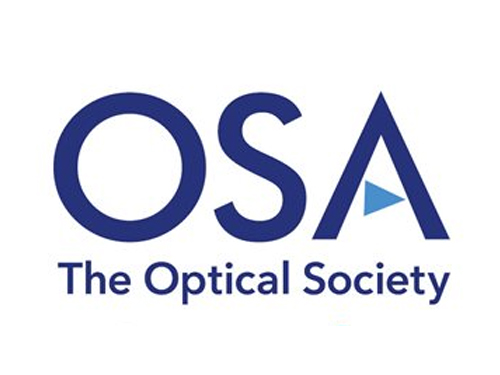 The First Winner of Sang Soo Lee Award in Optics and Photonics
The Optical Society of Korea and the Optical Society of America selected Mario Garavaglia, a researcher at the La Plata Optical Research Center in Argentina, as the first winner of the Sang Soo Lee Award.
Dr. Garavaglia has been selected to receive the award in recognition for his research and education in the field of optics and photonics in Argentina.
The Sang Soo Lee Award, co-established by the Optical Society of Korea and the Optical Society of America in 2012, is awarded to an individual who has made a significant impact in the field. Special considerations are made for individuals who have introduced a new field of research, helped establish a new industry, or made a great contribution to education in the field.
The award is sponsored by the late Doctor Sang Soo Lee's family, the Optical Society of Korea, and the Optical Society of America.
The late Doctor Sang Soo Lee (1925~2010) has been widely known as the 'father of optics' in Korea. He was an active educator, researcher, and writer. Dr. Lee served as the first director of the Korea Advanced Institute of Science (KAIS), the predecessor to KAIST, which was Korea's first research oriented university.
Dr. Lee also served as the 6th president of KAIST between 1989 to 1991 and was a KAIST professor of physics for 21 years. He oversaw the completion of 50 Ph.D. and 100 Master's students as well as published 230 research papers.
Philip Bucksbaum, the president of the Optical Society of America, commented,
"Garavaglia has been an example to the spirit of the Sang Soo Lee Award. The award is the recognition for his tireless efforts and commitment to the development of optics and photonics in Argentina through his teaching, research, and publications."
Jeong-Won Woo, the president of the Optical Society of Korea, said,
"The Sang Soo Lee Award is given to researchers who have consistently contributed to the development of the field. Garavaglia is a well respected researcher in Argentina, and we are truly happy with his selection."
Dr. Garavaglia established a spectroscopy, optic, and laser laboratory in Universidad Nacional de La Plata in 1966. He founded the Center for Optical Research in 1977 and served as the chief of the laboratory until 1991.
Dr. Garavaglia published over 250 research papers in the fields of classical optics, modern optics, photoemission spectroscopy, and laser spectroscopy. He has also received the Galileo Galilei Award from the International Commission for Optics in 1999.
2014.03.31 View 10848
The First Winner of Sang Soo Lee Award in Optics and Photonics
The Optical Society of Korea and the Optical Society of America selected Mario Garavaglia, a researcher at the La Plata Optical Research Center in Argentina, as the first winner of the Sang Soo Lee Award.
Dr. Garavaglia has been selected to receive the award in recognition for his research and education in the field of optics and photonics in Argentina.
The Sang Soo Lee Award, co-established by the Optical Society of Korea and the Optical Society of America in 2012, is awarded to an individual who has made a significant impact in the field. Special considerations are made for individuals who have introduced a new field of research, helped establish a new industry, or made a great contribution to education in the field.
The award is sponsored by the late Doctor Sang Soo Lee's family, the Optical Society of Korea, and the Optical Society of America.
The late Doctor Sang Soo Lee (1925~2010) has been widely known as the 'father of optics' in Korea. He was an active educator, researcher, and writer. Dr. Lee served as the first director of the Korea Advanced Institute of Science (KAIS), the predecessor to KAIST, which was Korea's first research oriented university.
Dr. Lee also served as the 6th president of KAIST between 1989 to 1991 and was a KAIST professor of physics for 21 years. He oversaw the completion of 50 Ph.D. and 100 Master's students as well as published 230 research papers.
Philip Bucksbaum, the president of the Optical Society of America, commented,
"Garavaglia has been an example to the spirit of the Sang Soo Lee Award. The award is the recognition for his tireless efforts and commitment to the development of optics and photonics in Argentina through his teaching, research, and publications."
Jeong-Won Woo, the president of the Optical Society of Korea, said,
"The Sang Soo Lee Award is given to researchers who have consistently contributed to the development of the field. Garavaglia is a well respected researcher in Argentina, and we are truly happy with his selection."
Dr. Garavaglia established a spectroscopy, optic, and laser laboratory in Universidad Nacional de La Plata in 1966. He founded the Center for Optical Research in 1977 and served as the chief of the laboratory until 1991.
Dr. Garavaglia published over 250 research papers in the fields of classical optics, modern optics, photoemission spectroscopy, and laser spectroscopy. He has also received the Galileo Galilei Award from the International Commission for Optics in 1999.
2014.03.31 View 10848 -
 Box-shaped Pressure Vessel for LNG Developed by KAIST Research Team
Earlier today, Korean researchers successfully showcased the installation and operation of a box-shaped, high-pressure tank for the storage of liquefied natural gas in Pohang, Republic of Korea. The development was the first of its kind in the world. Pressure vessels have many applications and are widely used within the petrochemical, energy, and other industrial sectors where the transport and storage of many types of pressurized gases and fluids are essential. Pressure vessels must be designed, manufactured, installed, and operated strictly in accordance with the appropriate codes and standards since they can, in cases of leak or rupture, pose considerable health and safety hazards. Pressure vessels are normally designed in the form of a cylindrical or spherical tank. These shapes are, in principle, highly efficient in withstanding internal pressure, but rather inefficient in terms of space utilization. The tanks fit very poorly within a typically prismatic-shaped room. They cannot be packed closely together, so they do not efficiently utilize the overall space. Moreover, cylindrical or spherical tanks are not easily scalable to very large sizes because the wall thickness of the tank must increase proportionally to its overall radius. Therefore, a large pressure vessel unavoidably will have very thick walls, which are difficult and expensive to manufacture, requiring a great amount of thick-walled steel to be rolled, forged, and welded together. KAIST researchers, sponsored by POSCO, a multinational steel-making company based in Pohang, Republic of Korea, have taken a turnabout approach to construct a pressure vessel that is neither cylindrical nor spherical. Professors Pål G. Bergan and Daejun Chang and of Ocean Systems Engineering at KAIST developed a box-type, large size pressure vessel for the storage and transportation of liquids such as liquefied petroleum gas (LPG), compressed natural gas (CNG), or liquefied natural gas (LNG). The box-shaped pressure vessel has an internal, load-carrying lattice-type structure. The lattice pattern is modular in all three spatial directions, thereby effectively anchoring and balancing pressure forces on the external walls of the vessel. The modular lattice can easily be adapted to prescribed pressure levels as the overall volumetric dimensions are directly linked to the number of repetitive modules. A giant prismatic pressure vessel with a size of 20,000 m3 and a design pressure of 10 atmospheres (10 barg) can be built simply by scaling up a smaller size pressure vessel. It is interesting to note that the thickness of steel walls remains unchanged and that the weight of steel per unit storage volume goes down as the vessel size increases. Professor Chang explained the benefit of a prismatic or box-shaped pressure vessel.“If we use cylindrical pressure vessels to supply LNG fuel for a large container ship, for example, many fuel tanks will be needed. Those tanks will take up large and valuable space onboard because the cylinders have to be lined up. In our case, however, much less space is needed. The operation of a ship becomes simpler with one fuel tank rather than with many. Furthermore, our box-type pressure vessel can be designed with dimensions that precisely fit a ship. For a container ship, there may be room for a substantially higher number of containers to be loaded than when using cylindrical vessels. In a case study on a 13,000 TEU container ship, the value of the increased transport capacity tuned out USD 8.4 million for one year of operation for one ship.”The manufacturing cost of a pressure vessel has been reduced as well. Several types of special steel for cryogenic (low temperature) applications have been investigated in design and analysis studies, and this includes a new type of high-manganese steel that is being developed by POSCO. Regardless of materials, in any instance of large pressure vessels, the new lattice tank technology can offer significant savings of combined capital and operational costs. Professor Bergan was also upbeat regarding the impact of the KAIST technology innovation. “Our box-type pressure vessel represents ground-breaking research. This innovative technology will dramatically change the rules of the game for industry concerning production, transportation, and storage of fluids under high pressure and at low temperatures.”The showcased prismatic pressure vessel was a scale-down model with a volume size of 80 m3 and design pressure of 10 atmospheres. The vessel complies with the American Society of Mechanical Engineers (ASME) Boiler and Pressure Vessel Code (BPVC), the international standard for the appropriateness of design, fabrication, and inspection of boilers and pressure vessels. It passed the 15 pressure testing in January 2014 and received an accreditation from the ASME BPVC (ASME U2 Stamp). KAIST’s prismatic pressure vessel will be presented and displayed at Gastech 2014, the largest global conference and exhibition in the natural gas, LNG, and hydrocarbons industry. This event will take place on March 24-27 at KINTEX in Ilsan, Republic of Korea. Youtube: http://www.youtube.com/watch?v=woJwc5zisxk&list=TLGOLcI7L6_YYTn0lImPqNyeppQWRXqUt5Picture 1: The prototype of a prismatic pressure vesselPicture 2: A lattice pattern that is lined inside a prismatic pressure tankPicture 3: Above is a container ship having a box-shaped pressure vessel as a fuel tank, and below are traditional cylindrical fuel tanks.
2014.03.25 View 14364
Box-shaped Pressure Vessel for LNG Developed by KAIST Research Team
Earlier today, Korean researchers successfully showcased the installation and operation of a box-shaped, high-pressure tank for the storage of liquefied natural gas in Pohang, Republic of Korea. The development was the first of its kind in the world. Pressure vessels have many applications and are widely used within the petrochemical, energy, and other industrial sectors where the transport and storage of many types of pressurized gases and fluids are essential. Pressure vessels must be designed, manufactured, installed, and operated strictly in accordance with the appropriate codes and standards since they can, in cases of leak or rupture, pose considerable health and safety hazards. Pressure vessels are normally designed in the form of a cylindrical or spherical tank. These shapes are, in principle, highly efficient in withstanding internal pressure, but rather inefficient in terms of space utilization. The tanks fit very poorly within a typically prismatic-shaped room. They cannot be packed closely together, so they do not efficiently utilize the overall space. Moreover, cylindrical or spherical tanks are not easily scalable to very large sizes because the wall thickness of the tank must increase proportionally to its overall radius. Therefore, a large pressure vessel unavoidably will have very thick walls, which are difficult and expensive to manufacture, requiring a great amount of thick-walled steel to be rolled, forged, and welded together. KAIST researchers, sponsored by POSCO, a multinational steel-making company based in Pohang, Republic of Korea, have taken a turnabout approach to construct a pressure vessel that is neither cylindrical nor spherical. Professors Pål G. Bergan and Daejun Chang and of Ocean Systems Engineering at KAIST developed a box-type, large size pressure vessel for the storage and transportation of liquids such as liquefied petroleum gas (LPG), compressed natural gas (CNG), or liquefied natural gas (LNG). The box-shaped pressure vessel has an internal, load-carrying lattice-type structure. The lattice pattern is modular in all three spatial directions, thereby effectively anchoring and balancing pressure forces on the external walls of the vessel. The modular lattice can easily be adapted to prescribed pressure levels as the overall volumetric dimensions are directly linked to the number of repetitive modules. A giant prismatic pressure vessel with a size of 20,000 m3 and a design pressure of 10 atmospheres (10 barg) can be built simply by scaling up a smaller size pressure vessel. It is interesting to note that the thickness of steel walls remains unchanged and that the weight of steel per unit storage volume goes down as the vessel size increases. Professor Chang explained the benefit of a prismatic or box-shaped pressure vessel.“If we use cylindrical pressure vessels to supply LNG fuel for a large container ship, for example, many fuel tanks will be needed. Those tanks will take up large and valuable space onboard because the cylinders have to be lined up. In our case, however, much less space is needed. The operation of a ship becomes simpler with one fuel tank rather than with many. Furthermore, our box-type pressure vessel can be designed with dimensions that precisely fit a ship. For a container ship, there may be room for a substantially higher number of containers to be loaded than when using cylindrical vessels. In a case study on a 13,000 TEU container ship, the value of the increased transport capacity tuned out USD 8.4 million for one year of operation for one ship.”The manufacturing cost of a pressure vessel has been reduced as well. Several types of special steel for cryogenic (low temperature) applications have been investigated in design and analysis studies, and this includes a new type of high-manganese steel that is being developed by POSCO. Regardless of materials, in any instance of large pressure vessels, the new lattice tank technology can offer significant savings of combined capital and operational costs. Professor Bergan was also upbeat regarding the impact of the KAIST technology innovation. “Our box-type pressure vessel represents ground-breaking research. This innovative technology will dramatically change the rules of the game for industry concerning production, transportation, and storage of fluids under high pressure and at low temperatures.”The showcased prismatic pressure vessel was a scale-down model with a volume size of 80 m3 and design pressure of 10 atmospheres. The vessel complies with the American Society of Mechanical Engineers (ASME) Boiler and Pressure Vessel Code (BPVC), the international standard for the appropriateness of design, fabrication, and inspection of boilers and pressure vessels. It passed the 15 pressure testing in January 2014 and received an accreditation from the ASME BPVC (ASME U2 Stamp). KAIST’s prismatic pressure vessel will be presented and displayed at Gastech 2014, the largest global conference and exhibition in the natural gas, LNG, and hydrocarbons industry. This event will take place on March 24-27 at KINTEX in Ilsan, Republic of Korea. Youtube: http://www.youtube.com/watch?v=woJwc5zisxk&list=TLGOLcI7L6_YYTn0lImPqNyeppQWRXqUt5Picture 1: The prototype of a prismatic pressure vesselPicture 2: A lattice pattern that is lined inside a prismatic pressure tankPicture 3: Above is a container ship having a box-shaped pressure vessel as a fuel tank, and below are traditional cylindrical fuel tanks.
2014.03.25 View 14364 -
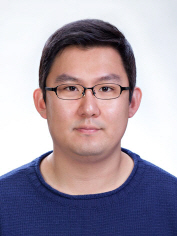 Tae-Wan Kim, a doctoral candidate, receives the best paper award from ECTC
The 2014 Electronic Components and Technology Conference (ECTC) will take place on May 27-30 in Florida, USA. Tae-Wan Kim, a Ph.D. candidate at the Department of Materials Science Engineering (MSE), KAIST, will receive the Intel Best Student Paper Award at the conference.ECTC is the premier international conference that brings together the best researchers and engineers in packaging, components and microelectronic systems science, technology and education in an environment of cooperation and technical exchange. The conference is sponsored by the Components, Packaging and Manufacturing Technology (CPMT) Society of IEEE (Institute of Electrical and Electronics Engineering).The paper describes research on novel nanofiber anisotropic conductive films for ultra fine pitch electronic package application, which was written under the guidance of Professor Kyung-Wook Paik of the MSE Department. In the past ten years, two of his students have received the best paper award from ECTC.
2014.03.14 View 11771
Tae-Wan Kim, a doctoral candidate, receives the best paper award from ECTC
The 2014 Electronic Components and Technology Conference (ECTC) will take place on May 27-30 in Florida, USA. Tae-Wan Kim, a Ph.D. candidate at the Department of Materials Science Engineering (MSE), KAIST, will receive the Intel Best Student Paper Award at the conference.ECTC is the premier international conference that brings together the best researchers and engineers in packaging, components and microelectronic systems science, technology and education in an environment of cooperation and technical exchange. The conference is sponsored by the Components, Packaging and Manufacturing Technology (CPMT) Society of IEEE (Institute of Electrical and Electronics Engineering).The paper describes research on novel nanofiber anisotropic conductive films for ultra fine pitch electronic package application, which was written under the guidance of Professor Kyung-Wook Paik of the MSE Department. In the past ten years, two of his students have received the best paper award from ECTC.
2014.03.14 View 11771 -
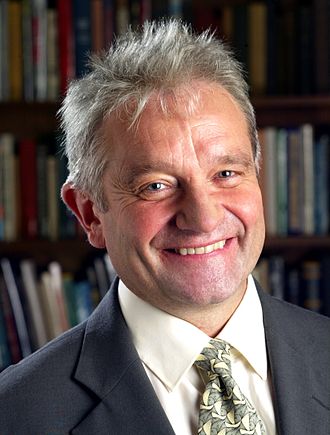 Visit by Sir Paul Maxime Nurse, President of the Royal Society
Sir Paul Maxime
Nurse, who is an English geneticist and cell biologist, visited KAIST and gave
a lecture entitled The Great Ideas of
Biology on March 11, 2014.
Sir Paul was awarded the 2001 Nobel Prize in
Physiology or Medicine with Leland H. Hartwell and R. Timothy Hunt for their discoveries
of protein molecules that control the division of cells in the cell cycle.
He was Professor of Microbiology at the University
of Oxford, CEO of the Imperial Cancer Research Fund and Cancer Research UK, and
President of Rockefeller University in New York. Sir Paul is currently the President of
the Royal Society as well as Director and Chief Executive of the Francis Crick
Institute.
Founded in London in 1660, the Royal Society is composed of the world’s most distinguished scientists drawn from all areas of
science, engineering, and medicine.
Below is a summary of his lecture, The Great Ideas of Biology:
Four major ideas of biology
are the theory of genes, evolution by natural selection, the proposal that the
cell is the fundamental unit of all life, and the chemical composition of a cell.
When considering the
question “what is life?” these ideas come together. The special way cells reproduce
provides the conditions by which natural selection takes place, allowing living
organisms to evolve. The organization of chemistry within the cell provides
explanations for life’s phenomena.
In addition, an emerging idea
is the nature of biological self-organization with which living cells and organisms
process information and acquire specific forms. These great ideas have
influenced one another and changed the way we perceive biology and science
today.
2014.03.11 View 10753
Visit by Sir Paul Maxime Nurse, President of the Royal Society
Sir Paul Maxime
Nurse, who is an English geneticist and cell biologist, visited KAIST and gave
a lecture entitled The Great Ideas of
Biology on March 11, 2014.
Sir Paul was awarded the 2001 Nobel Prize in
Physiology or Medicine with Leland H. Hartwell and R. Timothy Hunt for their discoveries
of protein molecules that control the division of cells in the cell cycle.
He was Professor of Microbiology at the University
of Oxford, CEO of the Imperial Cancer Research Fund and Cancer Research UK, and
President of Rockefeller University in New York. Sir Paul is currently the President of
the Royal Society as well as Director and Chief Executive of the Francis Crick
Institute.
Founded in London in 1660, the Royal Society is composed of the world’s most distinguished scientists drawn from all areas of
science, engineering, and medicine.
Below is a summary of his lecture, The Great Ideas of Biology:
Four major ideas of biology
are the theory of genes, evolution by natural selection, the proposal that the
cell is the fundamental unit of all life, and the chemical composition of a cell.
When considering the
question “what is life?” these ideas come together. The special way cells reproduce
provides the conditions by which natural selection takes place, allowing living
organisms to evolve. The organization of chemistry within the cell provides
explanations for life’s phenomena.
In addition, an emerging idea
is the nature of biological self-organization with which living cells and organisms
process information and acquire specific forms. These great ideas have
influenced one another and changed the way we perceive biology and science
today.
2014.03.11 View 10753 -
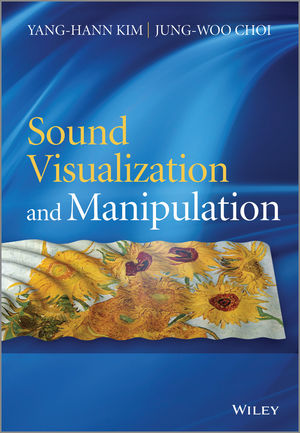 Book Announcement: Sound Visualization and Manipulation
The movie
Gravity
won seven Oscar awards this year, one of which was for its outstanding 3D sound mixing, immersing viewers in the full experience of the troubled space expedition.
3D audio effects are generated by manipulating the sound produced by speakers, speaker-arrays, or headphones to place a virtual sound source at a desired location in 3D space such as behind, above, or below the listener's head.
Two professors from the Department of Mechanical Engineering at KAIST have recently published a book that explains two important technologies related to 3D sound effects: sound visualization and manipulation.
Professor Yang-Hann Kim, an eminent scholar in sound engineering, and Professor Jung-Woo Choi collaborated to write Sound Visualization and Manipulation (Wily 2013), which uniquely addresses the two most important problems in the field in a unified way.
The book introduces general concepts and theories and describes a number of techniques in sound visualization and manipulation, offering an interrelated approach to two very different topics: sound field visualization techniques based on microphone arrays and controlled sound field generation techniques using loudspeaker arrays.
The authors also display a solid understanding of the associated physical and mathematical concepts applied to solve the visualization and manipulation problems and provide extensive examples demonstrating the benefits and drawbacks of various applications, including beamforming and acoustic holography technology.
The book will be an excellent reference for graduate students, researchers, and professionals in acoustic engineering, as well as in audio and noise control system development.
For detailed descriptions of the book:
http://as.wiley.com/WileyCDA/WileyTitle/productCd-1118368479.html
2014.03.10 View 13606
Book Announcement: Sound Visualization and Manipulation
The movie
Gravity
won seven Oscar awards this year, one of which was for its outstanding 3D sound mixing, immersing viewers in the full experience of the troubled space expedition.
3D audio effects are generated by manipulating the sound produced by speakers, speaker-arrays, or headphones to place a virtual sound source at a desired location in 3D space such as behind, above, or below the listener's head.
Two professors from the Department of Mechanical Engineering at KAIST have recently published a book that explains two important technologies related to 3D sound effects: sound visualization and manipulation.
Professor Yang-Hann Kim, an eminent scholar in sound engineering, and Professor Jung-Woo Choi collaborated to write Sound Visualization and Manipulation (Wily 2013), which uniquely addresses the two most important problems in the field in a unified way.
The book introduces general concepts and theories and describes a number of techniques in sound visualization and manipulation, offering an interrelated approach to two very different topics: sound field visualization techniques based on microphone arrays and controlled sound field generation techniques using loudspeaker arrays.
The authors also display a solid understanding of the associated physical and mathematical concepts applied to solve the visualization and manipulation problems and provide extensive examples demonstrating the benefits and drawbacks of various applications, including beamforming and acoustic holography technology.
The book will be an excellent reference for graduate students, researchers, and professionals in acoustic engineering, as well as in audio and noise control system development.
For detailed descriptions of the book:
http://as.wiley.com/WileyCDA/WileyTitle/productCd-1118368479.html
2014.03.10 View 13606